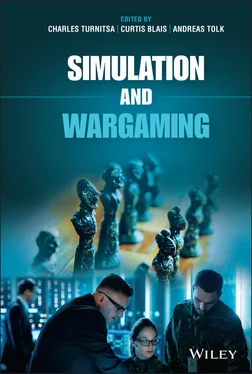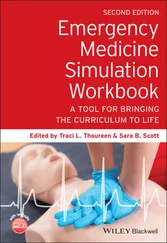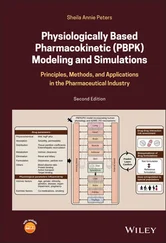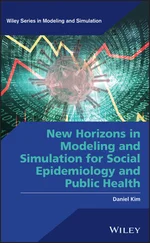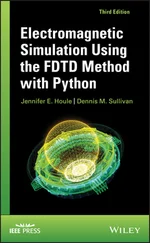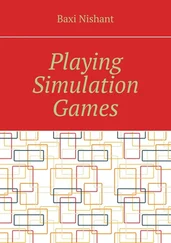1 ...7 8 9 11 12 13 ...20 Dariusz Pierzchałais an assistant professor at the Faculty of Cybernetics at the Military University of Technology (MUT) in Warsaw, Poland. He graduated from MUT with a MSc degree in information systems. In 2002 he obtained PhD in simulation and decision support. He is also Polish member of STO/NATO Modelling and Simulation Group. He has been teaching a variety of subjects over the last 15 years, from computer engineering to modeling and simulation and knowledge management. With the beginning of 2013, on retiring from the Polish Armed Forces as Colonel, he assumed the position of civilian assistant professor and deputy director at the Institute of Computer and Information Systems. His scientific interests concern decision support systems, machine learning, and computer simulation in the domain of national security, defense and crisis management. He received multiple awards, individually and as a team member, including the NATO STO Scientific Achievement Award (2015).
Phillip E. Pournelleretired as commander from the US Navy after 26 years of service as a surface warfare officer. He served on cruisers, destroyers, amphibious ships, and an experimental high‐speed vessel. He served on the Navy Staff doing campaign analysis, at the Office of Secretary of Defense Cost Assessment and Program Evaluation, and at the Office of Net Assessment. He is now the senior director for wargaming and analysis at the Long‐Term Strategy Group. He has a master of science degree from the Naval Postgraduate School in Monterey, California. He lives in Fairfax, Virginia.
Joseph Sauris currently working as a software engineer for Taurus TeleSYS on an R&D project supporting Newport News Shipbuilding in Virginia. He holds an MS/CS and a BS/CS from Old Dominion University, graduated w/distinction from the Naval War College, and a BS in biology from St. John's University. A wargamer for over 50 years, he has studied both wargaming and combat modeling academically, has taught multiple classes in computer science at a variety on institutions, including Georgia Tech, Regent University, and ECPI. He also taught courses in wargaming at the Marine Corps University and Marine Corps Warfighting Lab. He served as the government's assessment lead for the DARPA/JFCOM "Integrated Battle Command" project, which attempted to create an integrated set of models representing the entire Political, Military, Economic, Social, Infrastructure and Information (PMESII) spectrum, and the ability to postulate Diplomatic, Information, Military and Economic (DIME) Courses of Action (COA) in an attempt to predict (short‐term) potential multi‐dimensional outcomes.
Johannes Schmidtstudied business mathematics from 2013 to 2018 at the Freiberg University of Mining and Technology, Germany. Since 2018 he is a research associate at the Brandenburg University of Technology Cottbus‐Senftenberg. He works in the field of mixed‐integer optimization with differential equation‐based constraints. He is particularly interested in the mission planning of unmanned aerial vehicles.
Rikke Amilde Seehuusis a senior scientist at FFI, Kjeller Norway. She holds a PhD in computer science and a MSc in mathematics from the Norwegian University of Science and Technology, Trondheim, Norway. Her research interests include artificial intelligence, behavior modeling, and autonomous systems.
Mark Sissonis currently an operations research analyst with over 10 years’ experience at United States Strategic Command (USSTRATCOM). As a graduate of the Air Force Institute of Technology (AFIT), a USSTRATCOM fellow and distinguished graduate from the University of Foreign Military and Cultural Studies Red Teaming School, he is engaged in USSTRATCOM plans analysis. In his previous life, he was an aviator specializing in electronic warfare (EW) with over 4500 hours (including combat) in bombers, reconnaissance, and foreign military sales. He is currently working on his doctorate in strategic security, where he is exploring how to combine wargames with other analytical tools.
Andreas Tolkis a senior principal chief scientist at the MITRE Corporation in Charlottesville Virginia, and adjunct full professor at Old Dominion University in Norfolk, Virginia. He holds a PhD and MSc in computer science from the University of the Federal Armed Forces of Germany. His research interests include computational and epistemological foundations and constraints of model‐based solutions in computational sciences and their application in support of model‐based systems engineering, including the integration of simulation methods and tools into the systems engineering education and best practices. This includes the application of simulation methods in support of command and control, wargaming, and training domains. He published more than 250 peer‐reviewed journal articles, book chapters, and conference papers, and edited 14 textbooks and compendia on systems engineering and modeling and simulation topics. He is a fellow of the Society for Modeling and Simulation (SCS) and senior member of the Institute of Electrical and Electronics Engineers (IEEE) and the Association for Computing Machinery (ACM). He received multiple awards, including distinguished contribution awards from SCS and ACM.
Charles Turnitsais assistant professor in the Engineering and Computer Science Department at Regent University. He is the lead of the Computer Engineering program. He continues to do research work for the US Government, as a senior research scientist with Georgia Tech Research Institute. He holds a PhD in modeling and simulation, and MSc in electrical and computer engineering from Old Dominion University. He has been a wargamer, both as a hobbyist and a professional, for four decades. His research interests are in the application of combat modeling, the representation of knowledge within computer simulation systems, and the modeling of complex information. He has participated in numerous research projects related to the above areas, and other related areas, and continues to be active in both teaching and research. He is a member of the Association for Computing Machinery (ACM) and the Society for Modeling and Simulation (SCS). He has received numerous awards for his research contributions and remains a very active participant in the hobby wargaming field, currently serving as the president of the Old Dominion Military Society (the historical wargaming club of Southeast Virginia).
Paul Vebber, CDR, USNR (ret), leads wargaming efforts at the Naval Sea Systems Command Warfare Centers. He has an MS in applied science – undersea warfare from the Naval Postgraduate School and a BS in history of science from the University of Wisconsin‐Madison. He is active in the wargaming communities of practice associated with the US Navy and the Military Operations Research Society. He is one of the instructors for the wargaming certificate course affiliated with MORS and Virginia Tech University, with nearly 40 years of wargaming experience in the military, contractor, government and hobby sectors. He was one of the founders of www.matrixgames.comand part of the team that won the 2000 Charles S. Roberts award for Best 20th Century Computer wargame for “Steel Panthers: World at War.” He is active in the Connections wargaming conference organizing committee and has participated as a player, umpire, or analyst in wargames sponsored by a variety of US Navy and DoD organizations for over 20 years.
Jorit Wintjesis senior lecturer in the History Department at Julius‐Maximilians‐Universität Würzburg, teaching in both the university’s History and Digital Humanities programs. He received a doctor’s degree and qualified as a professor in history. He studied classics and history and has published several books on ancient and nineteenth‐century military history. His current research interests include Roman naval history as well as the history of professional wargaming.
Читать дальше
